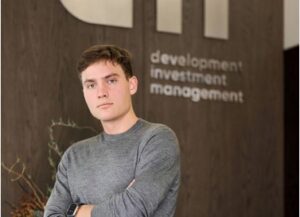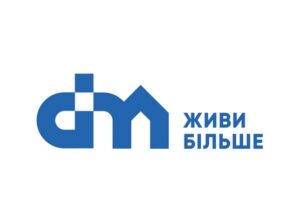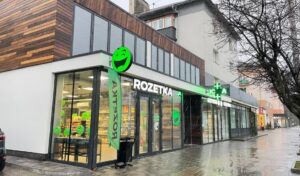
The average time taken to decide on buying an apartment in 2025 has increased to 67 days, which is more than three times longer than in pre-war 2021 (21 days), according to the press service of the development company DIM, citing internal CRM analytics and market analysis over the past four years.
“We are no longer dealing with emotional demand. The buyer of 2025 is a person who thinks, doubts, compares, consults, and chooses a balance between emotions and rational preferences. Selling has become a process of mutual decision-making, not just a demonstration of advantages,” comments DIM junior partner Arseny Nasirovsky.
According to the company, the number of points of contact before a purchase has increased 2.3 times since 2021, from 5-6 times to at least 13. Today’s buyers research the project online (website, digital cases, video reviews), visit the sales department at least once with a companion or relative, monitor the construction progress for some time, and even request a legal review of documents or a contract template for review.
At the same time, in 2021, 62% of transactions took place at the foundation stage or when the property was up to 30% complete. In 2025, such cases will account for just under 18%. On the other hand, 77% of purchases are properties that are more than 60% complete or have recently completed previous phases, demonstrating that the developer is continuing to build and is doing so systematically.
As for neighboring markets, this figure ranges from 60 to 120 days in European countries. In particular, in Spain, the average cycle for deciding to buy an apartment is 90-120 days, in Germany – 75 days, and in Poland – about 60.
“The market must adapt to a new behavioral model. If earlier it was a race for square meters and discounts, today it is a test of reputation, documents, and the logic of development. A new norm is emerging that is quite capable of changing the logic and structure of the new-build market: a thoughtful, rational purchase with elements of financial planning,” Nasikovsky concludes.
The portfolio of the development company DIM consists of real estate in Kiev and the surrounding area with a total area of more than 900,000 square meters. More than 3,600 apartments have been commissioned, and more than 356,000 square meters of residential and commercial space has been built. Six projects with a total area of more than 346,000 square meters are under construction.
Source: https://interfax.com.ua/

The DIM Group of Companies is launching its own long-term installment program in hryvnia with an annual interest rate of 10% for the purchase of housing in the developer’s projects, the group’s press service told Interfax-Ukraine.
“We are approached by buyers who dream of owning their own apartment or need to improve their living conditions, but for one reason or another do not qualify for government programs. It is for them that we have developed a new product to meet the growing demand among Ukrainians who cannot take advantage of the state program “eOselya” but are interested in purchasing quality housing in the “comfort+” segment and above,” said Alexander Nasirovsky, managing partner of the DIM group of companies, in a statement.
Under the terms of the program, the installment plan is provided for a period of 10 years with the possibility of early repayment. The price per square meter is fixed in the contract in hryvnia. The down payment is 30% of the cost. The interest rate is 10% per annum, and for military personnel, State Emergency
Service employees, and military medics, it is 8%.
The developer will test the pilot installment plan in the capital’s residential complexes Metropolis, Lucky Land, and Park Lake City, as well as on a limited basis in the Olegiv Podil club house in June-July to assess real demand among citizens. DIM plans to scale the program to all of the developer’s residential projects.
As reported, the DIM group of companies notes the advisability of increasing the maximum loan amount issued under the state program “eOselya” in proportion to the growth in the cost per square meter. According to Nasykovsky, in 2025, the cost of housing will grow by 15-20%.
The DIM development company’s portfolio consists of real estate in Kiev and the surrounding area with a total area of more than 900,000 square meters. More than 3,600 apartments have been commissioned, and more than 356,000 square meters of residential and commercial space has been built. Six projects with a total area of over 346,000 square meters are currently under construction.

Since the start of the full-scale invasion, the cost of housing construction in Ukraine has increased by 90-115% depending on the class of housing, and the trend continues, Vladimir Zhigman, construction director of the DIM group of companies, told the Interfax-Ukraine news agency.
Since the beginning of the year, the cost in the “comfort+” segment has increased by 17% to $850-1000/sq. m. The reasons for such a significant increase are not only the rise in the cost of building materials, but also a systemic shortage of personnel and a crisis in the supply of key items.
“Today, only 40-50% of pre-war workers are employed in construction. Some have left, some are in the Armed Forces. There is a shortage of qualified welders, crane operators, high-altitude workers, special equipment operators, and even ordinary laborers,” Zhigman explained.
According to him, to overcome the labor shortage, companies are raising wages, attracting contractors from other regions, and in some cases from abroad.
As for building materials, the estimated average price increase from the start of the full-scale war (February 2022) to May 2025 is between 40% and 60%. For example, concrete has actually doubled in price due to higher fuel costs, logistical difficulties, and a 30-40% reduction in production capacity compared to pre-war levels. The cost of drywall has increased by 35-45%, influenced by higher raw material prices, particularly gypsum, and rising energy costs.
The cost of plaster has also increased by 30-40% in approximately the same range. This is due to higher prices for cement and fillers, as well as increased energy costs. Tiles have also jumped in price by 50-60%, mainly due to import dependence, higher logistics and energy costs. At the same time, according to DIM analytics, the share of imported building materials in an average project has actually doubled: from 12-14% in 2021 to 23% in 2023 and almost reached 25% in 2024.
“Most elevators on the market are imported, as are ventilation systems and electrical equipment. Add to this logistics, exchange rates, and risks, and we have the answer to the question of upward dynamics,” Zhigman noted.
In 2024-2025, developers will increasingly rely on optimizing technical solutions, smart design, and transparent communication with buyers. In an industry where production costs are already close to market prices, this is becoming a matter not only of profitability but also of survival, the expert explained.
“Rising costs have become the new norm. The question is no longer whether prices will rise, but how to remain competitive without compromising on quality and pace,” commented Arseniy Nasirovsky, junior partner at DIM Group, whose words are quoted in the report.
According to him, in 2025 and beyond, the key competitive advantages for developers will be flexibility in design, forecasting of logistical risks, and systematic work with contractors. “The market is entering a phase where it is not the biggest but the most efficient that will win,” Nasykovsky believes.
The portfolio of the development company DIM consists of real estate in Kyiv and the region with a total area of over 900,000 square meters. 3,670 apartments have been commissioned, and over 356,000 square meters of residential and commercial space has been built. Six projects with a total area of over 346,000 square meters are under construction.

The market of commercial premises as part of residential complexes is actively developing, the highest demand is for small objects with an area of up to 150 square meters, said Ukrainian developers in a survey “Interfax-Ukraine”.
“The highest demand is observed for small areas (50-100 square meters) under cafes, pharmacies, beauty bars, and medium commercial areas (100-150 square meters) under clinics and grocery stores. Small and medium-sized areas are popular because they are easier to adapt to the needs of different businesses. Large areas (from 200 square meters) are in less demand, they are mostly occupied by supermarkets or restaurants,” the press service of KAN Development informed the agency.
The high demand for small commercial premises may indicate the high activity of small and medium-sized businesses looking for locations for coffee shops, salons, stores and offices, says Yuri Motuz, Director of Zezman Holding.
According to his data, about 58% of sales of commercial premises in the LCD in Odessa fall on objects with the area of 21-40 square meters. m. However, there is also a tendency for investors to purchase two small premises to combine into a large space (up to 200 square meters) for supermarkets, pharmacies, chain stores with warehouses.
The popularity of smaller premises is also due to their lower cost, said Anna Laevskaya, commercial director of Intergal-Bud.
“Investors are interested in commercial premises at different stages – both at the excavation stage and when the object is already ready. Everything depends on location and payment conditions. Smaller premises are sold faster because their cost is lower. Operators are actively expanding, entering new premises, and in general this segment is developing even better than the apartment market”, – she told in her commentary to ‘Interfax-Ukraine’.
According to the marketing director of DIM group of companies Daria Bedya, in general, investors’ requests to the developer to buy and rent commercial real estate as part of the LCD for the last three months have increased by 24% and 23% respectively.
“First of all, these data testify to the adaptation of Ukrainians and businesses to life in war conditions,” the expert emphasizes.
In addition to traditional cafes and restaurants, mix-format establishments are becoming increasingly popular in the LCD: a combination of cafes with flower stores or bookstores, said Irina Mikhaleva, CMO Alliance Novobud. Pet stores and grooming salons for animals are also gaining popularity.
“Owners of space make their own decision on what exactly to do. As a rule, they study the existing business infrastructure, weigh their options, studying supply and demand,” the expert explained.
At the same time, there is a tendency in the market to plan commercial space at the stage of concept creation and design of a residential complex, said Avalon’s operating director Yaroslav Vozniak.
“The builder or developer aims to form an ideal ecosystem of necessary infrastructure for apartment residents. Commercial space ‘advocates’ appeared at the level of project concept creation and subsequent design. Thus, the concept of “city in the city” and complexes with developed infrastructure appeared Long before the start of construction companies already understand what functions and business should be provided in certain places of the residential complex. Everything is for the sake of comfortable life or stay in the residential complex, for the sake of the resident,” he said.
This principle in the design of residential complexes is also adhered to in the company City One Development.
“We take into account the needs of the commercial segment at the design stage, offering a wide range of premises with different functional purpose. The most liquid commercial areas are premises with the size from 80 to 100 square meters, which are in the greatest demand among investors”, – reported in the press-service of the developer.
Alliance Novobud, Avalon, CITY ONE DEVELOPMENT, Daria Bedia, DIM, INTERGAL-BUD, Irina Mikhaleva, KAN Development. Zezman Holding, Yaroslav Vozniak, Yuri Motuz, Анна Лаевская.

DIM has launched its own official real estate agency, DIM+, for owners of projects already in operation and investors in those currently being implemented by the company.
According to the company’s press service, the daily flow of visitors to the sales departments looking for apartments in DIM complexes, together with a large base of existing and potential customers, guarantees that investors’ real estate will be sold or find tenants in the shortest possible time.
DIM+ offers not only purchase, sale, and rental services, but also complete property management. Among the services is the development of a personalized project for residential and commercial premises for properties without renovation. At the same time, the company takes control of the condition of the property, timely payment of utility bills, settlement of any issues, and full reporting.

DIM has launched its own official real estate agency, DIM+, for owners of already commissioned projects and investors in those currently being implemented by the company.
According to the company’s press service, the daily flow of visitors to sales departments looking for apartments in DIM’s complexes, along with a large base of existing and potential customers, ensures that investors’ real estate will be sold or find tenants as soon as possible.
DIM+ offers not only buying, selling and leasing services, but also full property management. Among the services is the development of a personalized project for residential and commercial real estate without renovation. At the same time, the company takes control over the condition of the property, timely payment of utility bills, settlement of any issues, and full reporting.